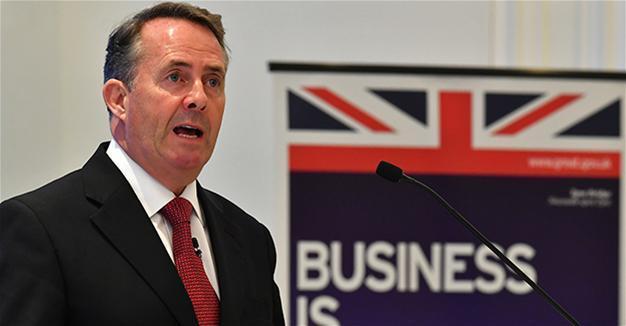British government rift over EU immigration
LONDON-Agence France-Presse
 The British government appeared divided on July 30 over Brexit, with International Trade Secretary Liam Fox clashing with finance minister Philip Hammond over free movement of labor once the U.K. leaves the EU.
The British government appeared divided on July 30 over Brexit, with International Trade Secretary Liam Fox clashing with finance minister Philip Hammond over free movement of labor once the U.K. leaves the EU.Fox said the cabinet had not agreed a deal on immigration once Britain is out of the European Union in March 2019.
With Prime Minister Theresa May out of the country on holiday, Hammond said on July 28 that there was “broad acceptance” in cabinet of a post-Brexit transitional period, extending current freedom of movement arrangements for up to three years.
But Fox told The Sunday Times newspaper: “If there have been discussions on that I have not been party to them. I have not been involved in any discussions on that, nor have I signified my agreement to anything like that.” In the June 2016 referendum vote to leave the EU, “We made it clear that control of our own borders was one of the elements we wanted in the referendum, and unregulated free movement would seem to me not to keep faith with that decision,” said Fox.
David Jones, a former junior minister in the Brexit department, branded Hammond’s transition plans “deeply dangerous.”
He accused the finance minister of “going on maneuvers” while May, weakened by the June general election, was on holiday in Italy.
“All this agitation by the chancellor and his allies is hugely discourteous to her and undermines her authority,” Jones said in The Mail On Sunday newspaper.
Meanwhile Gerard Lyons, who was an economic adviser to Foreign Secretary Boris Johnson when he was London mayor, said a two-year transition period would work better.
He said Hammond’s alarmism reminded him of the year 2000 when a feared “Millennium bug” was meant to make computer systems crash.
“Many of the ‘risks’ being highlighted about Brexit are perceived risks, not real risks. And a two-year transition would alleviate many concerns,” he wrote in The Sunday Telegraph newspaper.
The Brexit negotiations between London and Brussels got under way in June, focusing on three key topics: the future rights of EU citizens in Britain and vice versa; the departure bill and the land border between the U.K. and the Irish Republic.
















